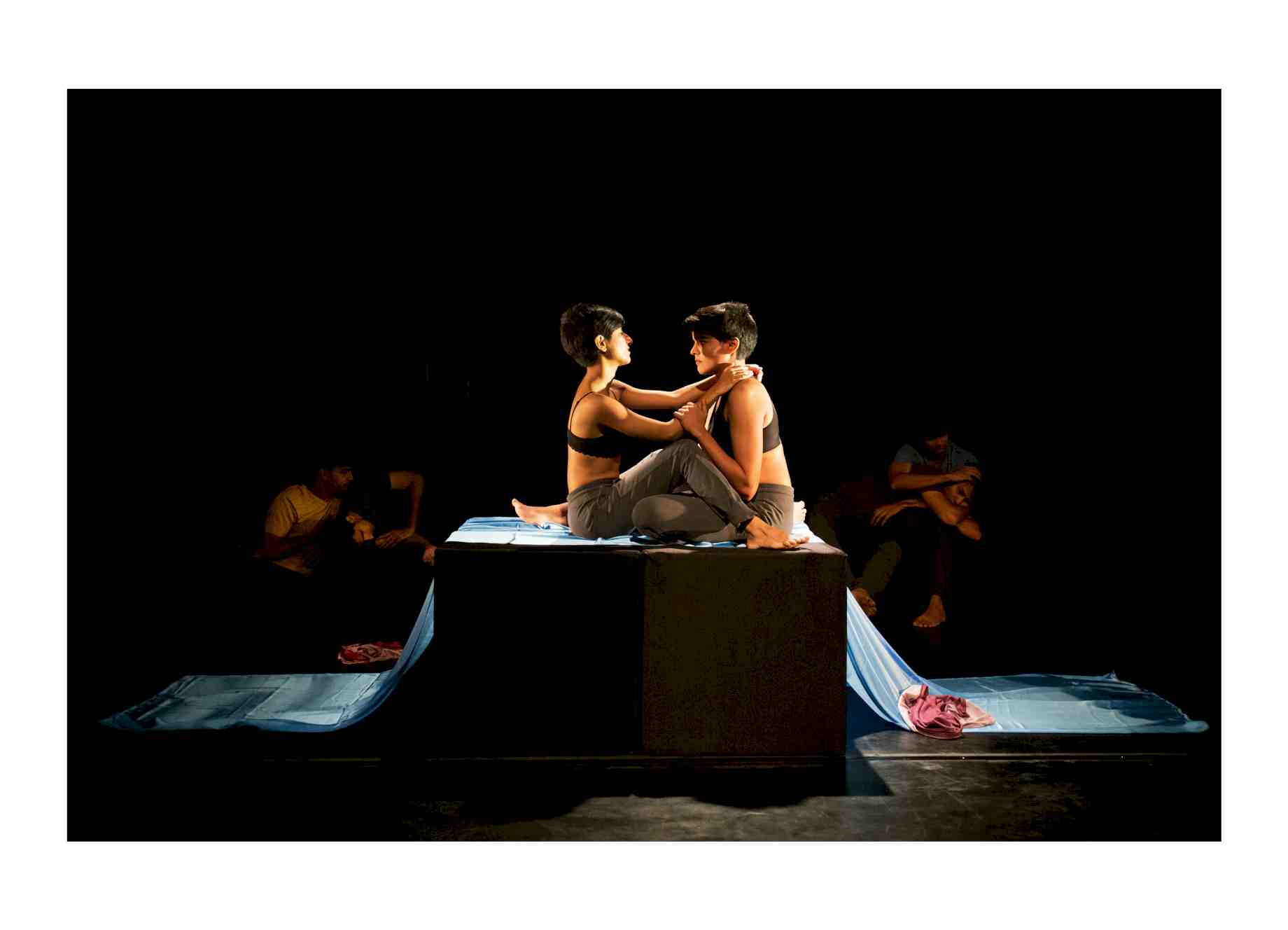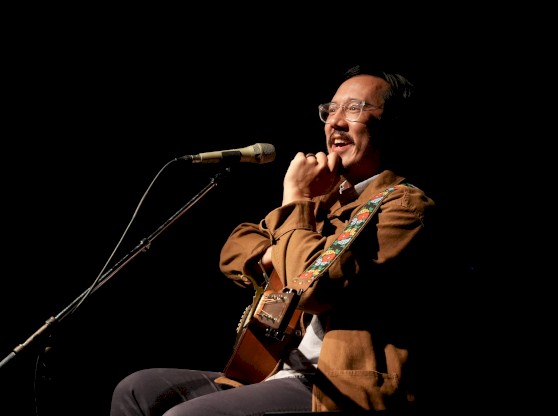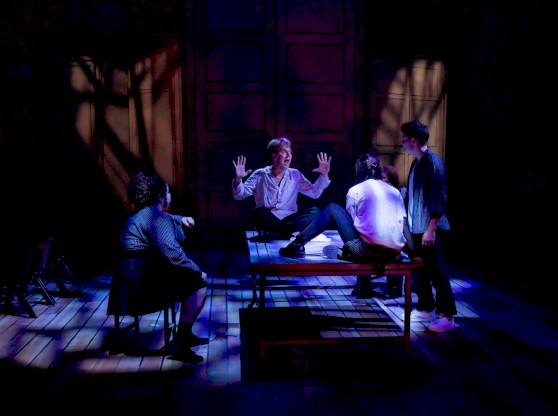Last year, UF Center for Arts in Medicine Research Assistant Professor Jeffrey Pufahl traveled to Mumbai, India, as part of a U.S. Consulate grant that invited artists from the United States for a creative playwriting residency with a local Indian theatre organization. The goal was to create an original community-based play that would engage mainstream audiences in India in a conversation about LGBTQ+ identity and stigma.
Pufahl worked with local actors, designers, and producers to produce a play that demonstrated LGBTQ+ experiences in authentic ways to highlight what may not be broadly visible or accepted in heteronormative spheres.
In India, being queer is even less culturally accepted than in the United States, Pufahl says, and in some ways, the play was unprecedented. Early on the production process, the cast and crew recognized that some scenes may have never been staged in the country, including one scene featuring intimate moments between two female characters.
After only six weeks of writing, rehearsals, and production, the cast and crew presented the play Even Mists Have Silver Linings at the G5A Centre for Contemporary Culture between March 7 and 14, 2020, just before the coronavirus pandemic caused a global shutdown.
Audience members took a survey before and after seeing the play, which primarily measured a variety of attitudes toward—and knowledge of—LGBTQ+ experiences.
In the survey results, the research team found that the most important element of the show was its quality of acting, which audience members rated above the story and information presented.
“That finding reinforces the understanding that the aesthetic experience itself—the quality of the play and the authenticity of those who are delivering the story—is key to an audience receiving the ideas embedded within it,” Pufahl says.
Pufahl added that authenticity was important in the storytelling too. While the nature of the Consulate project dictated that a United States-based artist would bring expertise to India, Pufahl says it was important that the stories were a part of Indian culture.
“We knew the play was going to be political, but through conversations with locals, we came to understand that we, as Westerners, could be perceived as importing an American perspective into India,” he says. “Part of our playmaking process was deconstructing that notion. The British criminalized homosexuality in 1861 and so we looked back to Hindu scripture where gender fluidity is explored through figures like Shikhandi. In this way, we drew attention to the idea that anti-LGBTQ+ sentiment is a relic of colonialism.”
The play was a devised work created together with the cast—which was made up of lesbian, gay, queer, and straight actors—and a playwright and dramaturg from the Mumbai LGBTQ+ community.
The survey results showed key findings in how the play could move the audience toward greater solidarity, measuring viewers’ support, admiration, appreciation, and nurturance.
A particular area of growth was in the audience's willingness to advocate for LGBTQ people in everyday settings. Before the show, about two-thirds of the audience indicated they were likely to be willing to act as allies to the LGBTQ+ community. After the play, more than 75% of the audience agreed they would be likely to engage in prosocial behaviors, such as taking a stand against homophobia and anti-gay attitudes. The change was particularly significant for cisgender heterosexual respondents aged 18–24 years, according to the article Pufahl and others published in Public Health, the official journal of the Royal Society for Public Health.
Pufahl says this change is significant in a culture where taking a stand for LGBTQ+ people is rare and can increase their acceptance in society and access to services.
The findings also indicated increased admiration and nurturance.
The level of support of the LGBTQ+ community remained high before and after the play. Pufahl recognized that this baseline of acceptance is less surprising given the play was performed in an urban environment and that audiences who choose to attend a play about LGBTQ+ experiences are likely familiar with or supportive of the community.
However, the shift in attitudes and appreciation offer hope for future renditions of the play and other theatrical works.
“Theatre can be a blurred experience where you don’t really know if this is just an act or if players really believe what their characters are saying or doing,” Pufahl says. “Through that process as an audience member, you kind of let go of your resistance and can have an emotional experience, which is really a precursor to social change. If my worldview has changed slightly from seeing a play, then how I interact in society as a whole changes.”
The Public Health article states this was likely the first documented assessment of the role of community-based theatre as a catalyst to inform social change for LGBTQ+ communities in India.
Read more about the work and findings in Even Mists Have Silver Linings: Promoting LGBTQ+ Acceptance and Solidarity through Community-Based Theatre in India.




